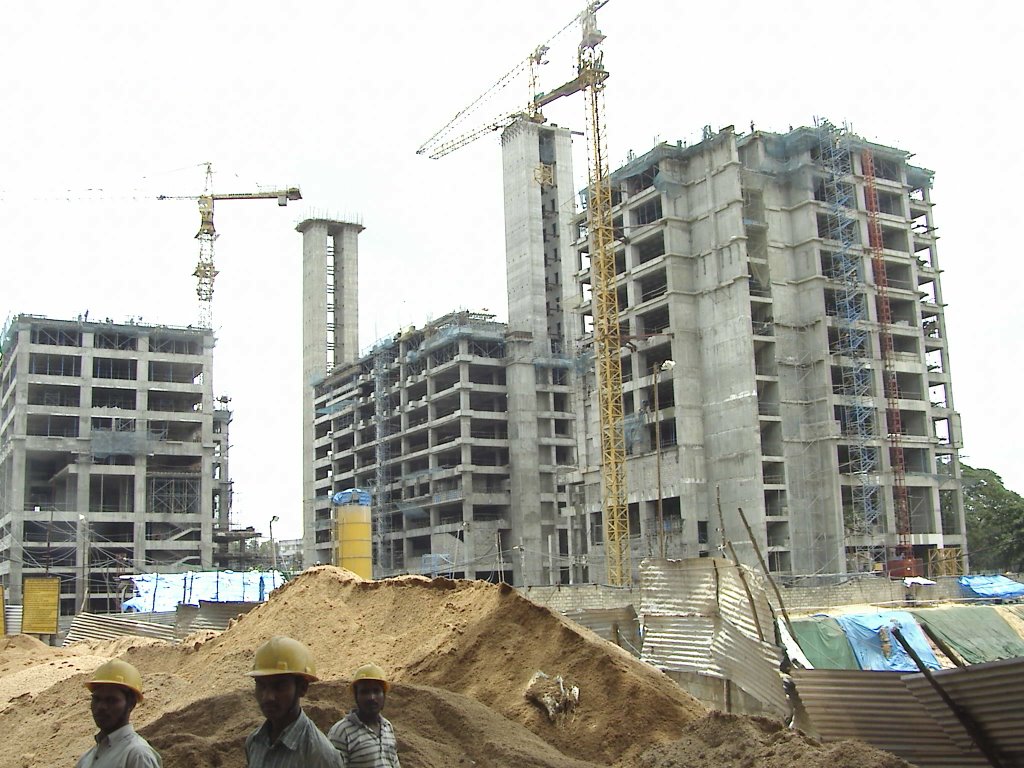
The National Capital Region(NCR) remains a hot bed of real estate scams. Here is a new one I recently came across. And this is how it operates.
A customer buys an under-construction flat which is in an advanced stage of construction, under a 60:40 scheme. The way this works is that the customer has to pay 60% of the price of flat within 30 days of booking it. The remaining 40% is to be paid when the flat is ready for possession.
Of course, being a part of the middle class, the customer has also taken on a home loan to buy the flat. As is the norm, the housing finance institution from which the loan is taken, finances 80% of the price of the flat and the remaining 20% is put in by the buyer himself.
Given that the flat is still under construction, a pre-EMI, which amounts to 50% of the actual EMI on the loan, has to be paid. The payment of the full EMI kicks-in only after the buyer has taken possession of the flat.
So far so good. Now this is where things get interesting. The pre-EMIs get automatically debited from the buyer’s account for a few months. A visit to the site reveals that the project is moving at a slow pace and will be delayed by a few months.
The buyer is still happy given that many builders in the Uttar Pradesh side of NCR have stopped construction for a long time, due to what they call a “labour strike”. Also, the dream of owning a home is so strong that a delay of few months doesn’t really matter.
A few days after having visited the site, the buyer gets a letter from the builder titled “offer for possession”. The letter simply asks the buyer to pay up the remaining 40% of the amount within the next 15 days. Further, he needs to inform the builder when he wants to take the possession of the flat, so that the finishing touches can be put to the flat before it is handed over.
Also, the letter clearly states that if the buyer doesn’t pay up within the next 15 days, the builder won’t complete the work.
This makes the buyer wonder that how could the builder have completed the work so quickly. The last time he had gone on a site visit, a lot remained to be done. A couple of phone calls to well-meaning friends reveal that this has been a standard operating procedure for the builders in the recent past in the NCR, where they send out offer for possession letters, much before the flat is completely built.
The reason for this is straightforward—the cheapest way for the builder to raise money is from the buyer. On everything else, he has to pay interest. Also, with the real estate sector on a slide (the unsold inventory of homes in NCR is close to 6 years now), this is one way of ensuring that the builder does not put further money into the project.
By putting a 15 day deadline, the builder comes to know exactly who are the people interested in taking possession, and completes only a specified number of flats. The remaining flats can wait till the housing market starts to recover.
The buyer obviously is caught in this now—having already paid 60% of the money, there is no way he can back out. So, he goes to the housing finance company, takes on the remaining part of the home loan and pays the builder the remaining amount.
It is obvious that at this point of time the buyer will want to go visit the site and see how much progress has been made and how soon the flat is likely to be handed over. Given that, there has not been much progress from the last time he had been there, the builder has cordoned off the site completely.
So, there is no way of figuring out how the construction of the flat is coming along. Further, with the buyer now taking on the full amount of the home loan, the full EMI kicks-in. So, the buyer is now paying the rent as well as the EMI, throwing his monthly finances completely in disarray.
Meanwhile, the builder has also managed to collect the first year’s maintenance charges in advance from the buyer. And at the same time, the builder hasn’t paid a single penny for the delay in handing over the possession of the flat. Though, if the buyer delays any payment even by a single day, the builder is very prompt in fining him. And so the story goes.
Given that, there are no quick redressal mechanisms for real estate issues (or for that matter anything else) in this country, the ‘genuine’ buyers who are buying homes to live in and not as an investment, typically tend to go along with whatever the builder wants them to.
As is the case with life, so is the case in real estate—the small guy generally loses.
(Vivek Kaul is the author of the Easy Money trilogy. He tweets @kaul_vivek)
The column originally appeared on Firstpost on May 14, 2015